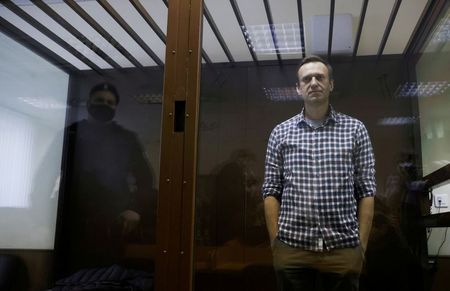Bill Browder: How the UK should punish Putin for Navalny’s death

The UK government must confiscate Russian central bank assets and do “everything in its power” to force the release of imprisoned British-Russian campaigner Vladimir Kara-Murza following the death of Alexei Navalny, one of Putin’s fiercest critics has claimed.
Bill Browder, once dubbed the Kremlin’s most wanted man and formerly among Russia’s largest foreign investors, launched a scathing attack on the UK government and called on ministers to take drastic action to punish the Kremlin following the death of Navalny in prison last week.
Browder has been a vocal opponent of Putin for nearly two decades and one of the leading voices calling for tougher curbs on Russia since its invasion of Ukraine in 2022.
The American-British financier became persona non grata in Moscow after waging high-profile campaigns against Russia’s biggest state-backed firms and lobbying for the introduction of the ‘Magnitsky Act’ in countries around the world, which allows the government to sanction foreign human rights abusers.
Speaking to City A.M., Browder criticised the UK’s response to Navalny’s death and said the government now needed to take “serious” action by confiscating Russian central bank assets.
“There’s all these sort of nameless, faceless people sitting in the bowels of the Foreign Office [and] the Treasury, that are all flapping their arms around saying ‘but we’ve never done this before, we shouldn’t do anything new’. It’s time we do something serious,” he said.

Like other central banks, the Russian central bank placed some of its gold and foreign exchange reserves in liquid assets such as major currencies, gold and government bonds. Around half of the reserves were held in the West.
However, governments froze around $300bn of the reserves and blocked the Kremlin from accessing the funds after the invasion.
Calls have been growing for governments to now confiscate the assets and funnel them into the reconstruction of Ukraine. The EU passed a law earlier this month to allow it to set aside profits made on the assets in the first major legislative move to make use of the cash.
US lawmakers are also mulling legislation dubbed the ‘repo act’, which would allow them to transfer ownership of the US-based Russian-owned assets.
While foreign secretary David Cameron urged Western nations to confiscate these assets at Davos last month, the UK has so far failed to take legislative steps towards the move.
“That money should no longer be frozen. It should be confiscated and used for the defence and reconstruction of Ukraine,” Browder added.
“We need to hit Putin harder than just sanctioning a few more individuals, and the confiscation of a central bank reserves hits him really hard.”
The comments will pile further pressure on the UK government for a more robust response following Navalny’s death.
In its first major action following the death of Navalny, the UK yesterday sanctioned six individuals who ran the Arctic prison where he was killed.
However, the response was labelled by some as insufficient, with influential Tory MP Alicia Kearns claiming the government needed to go “a lot further” to punish the Kremlin.
“I think the sanctions announced on the prison officials are wholly inadequate,” Browder added.
Browder said the government must also now intensify efforts to release the jailed British-Russian campaigner Vladamir Kara-Murza.
Kara-Murza, a former journalist turned political activist, was convicted of treason and spreading disinformation after the invasion of Ukraine and is currently serving a 25-year sentence.
“The British government should be doing everything in its power to get him out,” Browder said.
“But the government has a policy of not trying to negotiate on the release of hostages. And so I’ve had to spend my entire time [at the Munich Security Conference] working with other governments, because the British government really doesn’t want to do anything here.
“For [the government] to put his family, me and other friends of his through the process of having to go to other governments, who are very enthusiastically trying to release him, is shameful.”
The Foreign Office told City A.M. that the conviction of Kara-Murza was “deplorable” and doubled down on its “call on Russia to release Mr Kara-Murza immediately and unconditionally”.
However, foreign office minister Leo Docherty said on Monday that the government “would not countenance a policy of prisoner swaps”.
Kara-Murza was a champion of the Magnitsky Act, named after Browder’s lawyer, Sergei Magnitsky, who was arrested and died in prison after uncovering a tax fraud involving the Russian state.
Browder’s calls for action come after City A.M. reported that the UK has failed to sanction six of the figures identified as top sanctions targets by Alexei Navalny.
Among those still yet to face any UK sanctions are Russian health minister Mikhail Murashko, who Navalny accused of “covering up” his poisoning and frustrating his exit to Germany, where he sought medical treatment.
Browder said the “first and most obvious step” from the UK should be sanctioning the remaining six people on Navalny’s list.